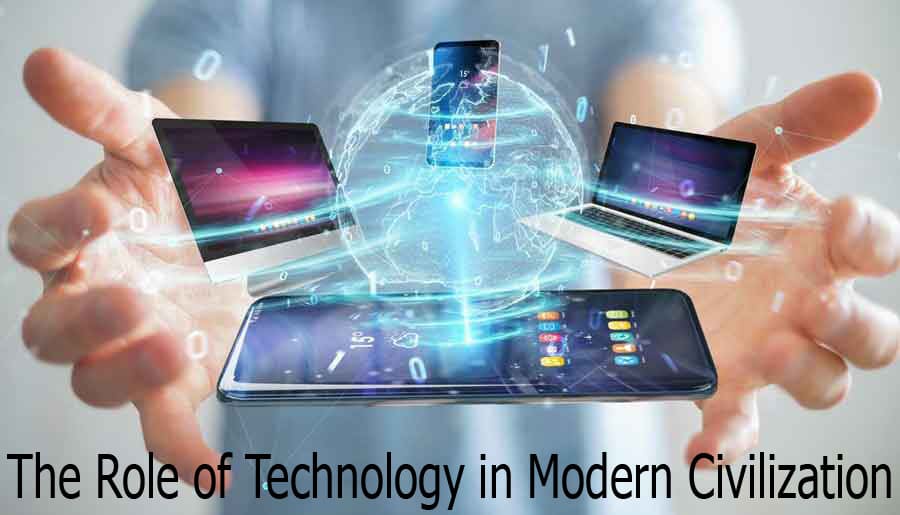
The Role of Technology in Modern Civilization
Definition of Technology
Technology is the sum of all procedures, instruments, and frameworks created using scientific principles to assist people in resolving issues and enhancing their quality of life. In a modern context, technology is not limited to hardware but also includes software, methods, and systematic innovations that support efficiency, productivity, and sustainability.
According to technology historian Thomas P. Hughes, technology is “a large system that integrates people, tools, techniques, and organizations to achieve specific goals.” This definition emphasizes that technology is not merely a product, but an ecosystem.
The Evolution of Technology Over Time
1. Traditional Technology
In ancient times, technology was simple—such as the use of stone tools, the wheel, and manual irrigation systems. Though primitive, these innovations laid the foundation of human civilization.
2. The Industrial Revolution
The 18th century marked a major shift with the invention of steam engines, mass production, and modern manufacturing systems. The global economy and society started to be shaped by technology.
3. The Digital Age
With the development of microprocessors, personal computers, the internet, and telecommunications, the information age emerged—where data became the new valuable asset.
4. The Fourth Industrial Revolution
We are now entering a new era where physical, digital, and biological technologies are integrated. Artificial Intelligence (AI), the Internet of Things (IoT), blockchain, and robotics create interconnected systems operating in real-time.
Types of Technology and Their Applications
1. Information and Communication Technology (ICT)
This includes computers, the internet, and cloud-based software. ICT is used across all sectors: education, business, government, and entertainment.
2. Energy Technology
Innovations like solar panels, wind turbines, and lithium batteries are driving the transition to renewable energy.
3. Medical Technology
Includes MRI machines, surgical robots, and telemedicine systems that expand healthcare access and enhance diagnostic accuracy.
4. Transportation Technology
Electric vehicles, autonomous driving systems, and satellite navigation are revolutionizing mobility with greater efficiency and environmental friendliness.
5. Environmental Technology
Recycling technology, air filtration, and smart waste management systems help preserve ecosystems and promote sustainability.
Benefits of Technology in Modern Life
- Increased Productivity
Automation and AI reduce human error and accelerate production processes. - Unlimited Access to Information
Millions of knowledge sources are instantly accessible through the internet. - Global Communication Made Easy
Technology enables international collaboration in seconds via video conferencing and digital platforms. - Advancements in Healthcare
Diseases that were once untreatable are now manageable with cutting-edge medical technology. - Fostering Innovation and Entrepreneurship
Digital platforms and readily available funding are key factors in the success of technology-based enterprises.
Negative Impacts and Ethical Challenges of Technology
1. The Digital Divide
Not all communities have equal access to technology or the skills to use it, widening social inequality.
2. Privacy Threats
Massive data collection and analysis pose serious risks of data breaches and misuse.
3. Dependency and Social Isolation
Excessive use of digital devices may reduce social interaction and increase anxiety.
4. Technological Unemployment
Automation may replace human labor, especially in repetitive job sectors.
Shared Responsibility in the Use of Technology
Governments, the private sector, academia, and civil society all share responsibility in ensuring technology is used ethically, inclusively, and sustainably. This includes:
- Promoting digital literacy from an early age.
- Enforcing strict personal data protection regulations.
- Investing in research and development (R&D) for long-term innovation.
- Educating the public about the full scope of technology’s impacts.
Conclusion
Technology is an incredibly powerful tool—it can accelerate human progress or pose new challenges. Therefore, its use must be accompanied by knowledge, ethics, and thoughtful regulation. With a responsible and collaborative approach, technology can serve as a key driver toward a more equitable, inclusive, and sustainable future.






